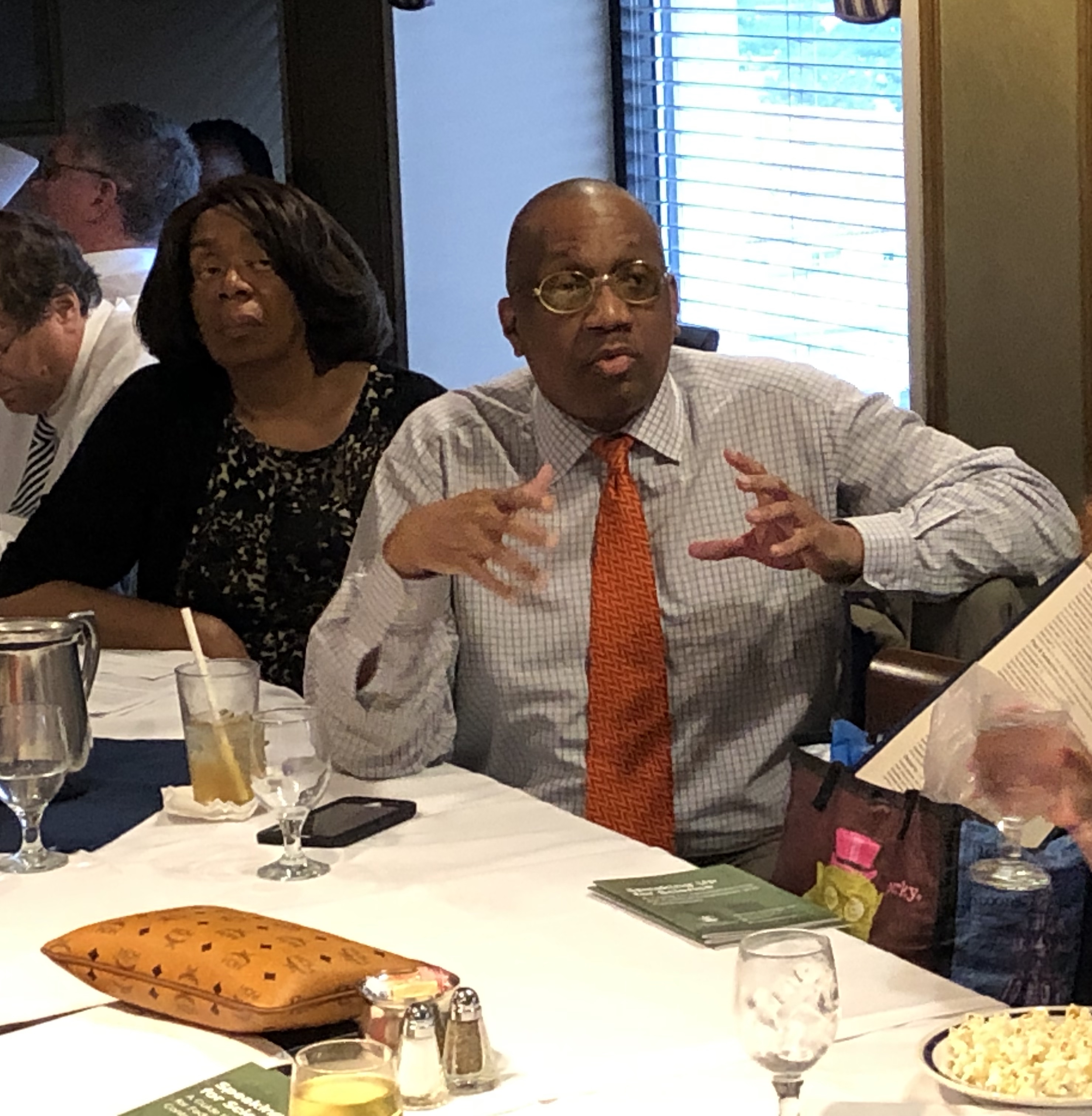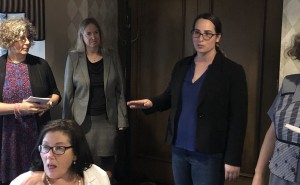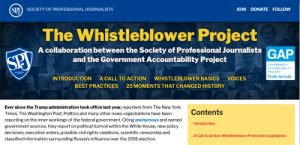
. . . and it was all about the medium meets the message
Whistleblowers and journalists learn more about each other
After watching the movie “All the President’s Men,” it is very tempting to believe that whistleblowers can keep their anonymity as securely as Deep Throat had been able to do for decades.
At the max-capacity Journalist/Whistleblower Mixer sponsored by SPJ DC Pro on July 31, 2019, in the McClendon Room at the National Press Club, however, both sides came to the realization that the coming forward of a whistleblower has far more legal consequences than many journalists have anticipated. It is also clear that a number of whistleblowers don’t understand what the role of journalists traditionally is.
Under the Trump administration, people working in the federal government have been discouraged from “leaking” anything to the public. Regardless of who is president of the United States, however, the potential legal consequences for whistleblowers are considerable and leave them particularly vulnerable.
In a number of cases, people choose to become whistleblowers in order to make public acts of wrongdoing that are under government watch. Most of these individuals have access to legal protection.
SPJ has established a working relationship with the Government Accountability Project, a nonprofit organization that uses political advocacy and legal campaigns to protect whistleblowers and encourage “occupational free speech.” This partnership is called The Whistleblower Project.
— by Selma Khenissi, new at large member of the DC Pro Chapter board
~~~~~
The SPJ DC Pro Chapter agreed to host a happy hour so journalists and whistleblowers could mingle in an informal setting during the usually intense activity of the multi-day Whistleblower Summit and Film Festival in late July in Washington. Thanks to added publicity for the happy hour provided to summit attendees, the event garnered unusually high interest, and it hit maximum capacity about a month ahead of July 31.
Immediate Past Chapter President Jonathan Make wrote about the discussion during the event on his blog.
From his coverage:
“Whistleblowers don’t know how journalists work,” said Marcel Reid, a whistleblower advocate and an organizer of the Whistleblower Summit, during which this event was held. “If the journalists and the whistleblowers meet each other, in a non-stressful environment, nobody’s trying to push a story out and nobody’s trying to get a story, then perhaps you could spend a little time trying to understand what each other does.”
Dana Gold, of the Government Accountability Project (GAP), who has spoken at past SPJ whistleblower events, thinks both journalists and whistleblowers “are two of the most important pieces to protecting and promoting democracy today.” And “both (are) under attack” and can work together, she noted: Journalists can “make sure they have whistleblowers’ backs and they do not inadvertently hurt their source.”
“One of the under-talked about issues” on the media and free speech is whistleblowers “and the importance of whistleblowers. They are completely essential to democracy,” Danielle McLean, chair of the national SPJ Freedom of Information Committee, said. McLean and Gold are project coordinators for The Whistleblower Project.

Foxhall noted that Brittany Kaiser attended the happy hour. She is a whistleblower who was featured in a recent Washington Post article about the Cambridge Analytica involvement in the 2016 presidential election and was the subject of the Netflix documentary “The Great Hack,” which was also screened in Washington on National Whistleblower Day July 30.
~~~~~
National Whistleblower Day was observed Tuesday, July 30, at an event hosted by the National Whistleblower Center, in the Dirksen Senate Office Building. It noted that this is the 241st anniversary year of “America’s first whistleblower law, passed July 30, 1778. The law was passed after ten whistleblowers reported wrongdoing and abuses committed by a superior officer in the Continental Navy.”
Resolved, that it is the duty of all persons of the United States, as well as all other inhabitants thereof, to give the earliest information to Congress or any other proper authority of any misconduct, frauds, or misdemeanors committed by any persons in the service of these States, which may come to their knowledge.
— first U.S. whistleblower law, passed by the Continental Congress
Keynote speaker for the luncheon held during the event was Sen. Chuck Grassley, R-Iowa, who was busy with other matters and actually spoke after some other members of Congress, since his arrival was delayed.
Grassley said “there are always bad actors out there trying to cheat the system,” and pointed to the Senate Whistleblower Protection Caucus — which he chairs — as an effort to make sure those bad actors are called out and the ones doing the calling out are free from retribution.
“Thank you, patriots!” he told the audience of many whistleblowers.
Sen. Ron Wyden, D-Ore., vice chairman of the WP Caucus, called Chuck Grassley the “gold standard” when it comes to whistleblower legislation.
Wyden said that if he had his way, “every single day in America ought to be Whistleblower Appreciation Day.” He got a lot of applause from the whistleblower audience for that line.
He talked about how social media has made an environment in which “the truth” has become just another point of view, but said he doesn’t think this is all gloom and doom, though, because whistleblowers can still step up.
In the coming seeks Congress will be working on important whistleblower-related legislation, he said, but at least one media outlet criticized the lack of follow-through for protections for Capitol Hill workers.
“Please blow the whistle! And support the free press. This is not a partisan issue – it’s not!” Wyden said.
Please blow the whistle! And support the free press. This is not a partisan issue – it’s not!
— Sen. Ron Wyden, D-Ore.
Jim Lankford, R-Okla., said whistleblowers in the past five years have saved the government $200 billion. “We need people with background and passion to step up.”
“Longer than we’ve been a country, we’ve been trying to hold our government to account.”
“God Bless and thank you!”
Oversight.gov has a new report and whistleblower resources posted. Special note given to Whistleblowing Works: How Inspectors General Respond to and Protect Whistleblowers.
We are ready to hazard everything that is dear & if necessary, sacrifice our lives for the welfare of our country, we are desirous of being active in the defense of our constitutional liberties and privileges against the unjust cruel claims of tyranny & oppression . . .
— Petition dated Feb. 19, 1777, written to the Continental Congress by America’s first whistleblowers

